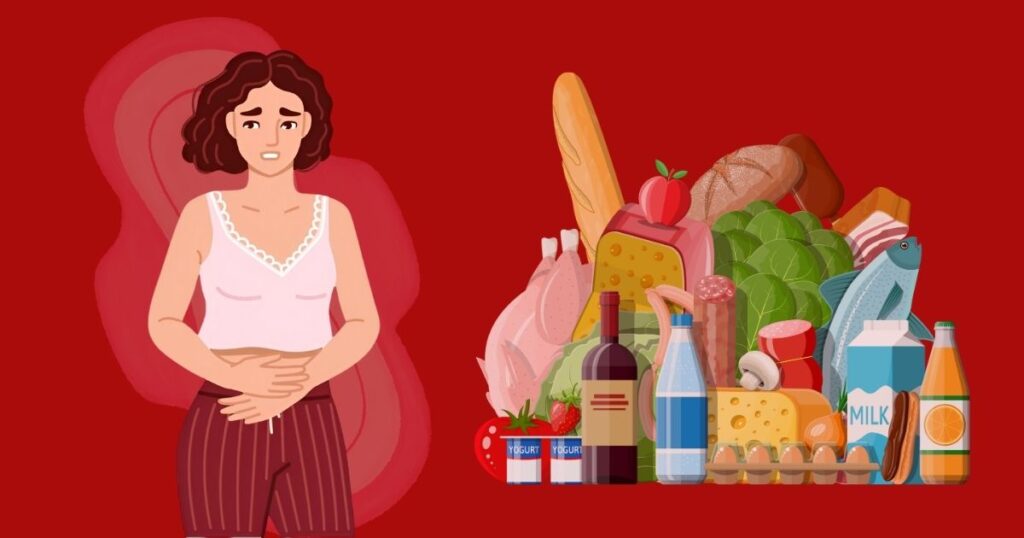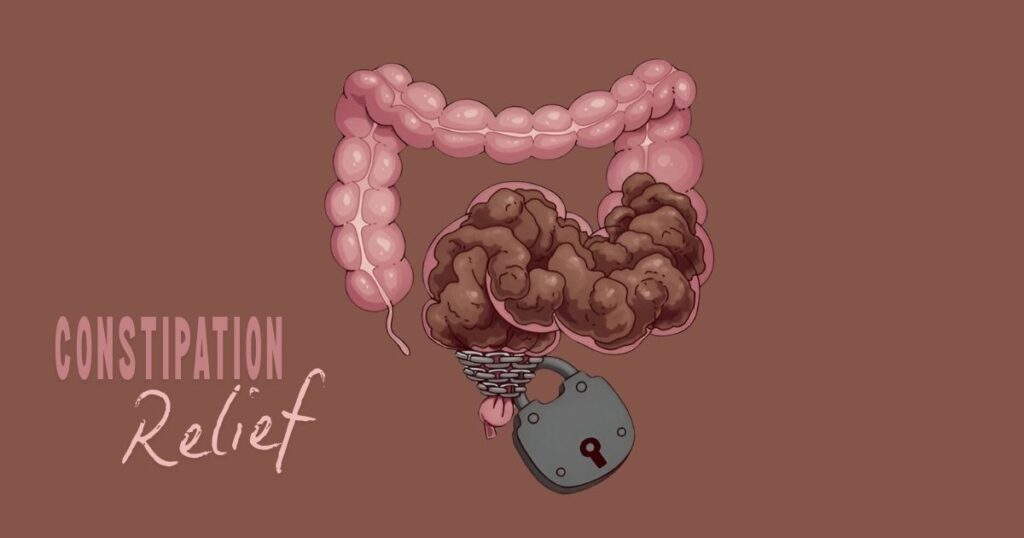Which Foods to Eat and Avoid During Your Period To Escape Menstrual Discomforts Including Pains
Before Listing Which Foods to Eat and Avoid During Your Period …
With a tendency towards generalising everything in this world, we think that a diet rich in nutrients keeps us out of all health-oriented troubles. We tend to overlook that specific body conditions require specific nutrients to cope and heal. An otherwise healthy diet might fall short if psychosomatic discomforts are felt.
For periods, those will be cramps, bloating, mood swings, and fatigue during periods, too, which require specific anti-inflammatory, hormone-balancing, and nutrient-dense foods for which there would be a different diet chart than is followed to fight obesity. Or, one that’s made for a normal, healthy adult.
Below is introduced a diet chart and a few basic preliminaries attached to it. The foods and the eating patterns are laid in an order to ease period symptoms. Additionally, they promote both physical and emotional health.
Follow few, basic principles before listing Which Foods to Eat and Avoid During Your Period
We know that nutrient-dense foods help maintain hormonal balance, reduce discomfort, and enhance our overall health. It keeps all sorts of physical and psychological healr=th issues away. What we don’t, usually, is they have types. Effects of the food you intake during periods work best if by nature they are:
- Anti-inflammatory: To reduce cramps and pain.
- Rich in Magnesium and Potassium: Gets rid of bloating, muscle tension.
- Iron-rich foods: Replenishes lost iron, fights combat fatigue.
- Complex carbohydrates: Stabilizes blood sugar levels; reduces mood swings.
- Hydrating: Supports overall health, aids fighting infections, prevents water retention.
These 5 points, followed closely, will keep the dreaded cravings away. The power of nutrition always leads to a happier, healthier outcome.
Setting A Nutritional Balance is Easy when You Know Which Foods to Eat and Avoid During Your Period
A nutritional imbalance might turn periods irregular; severe at times or no periods at all! It’s a lack of essential nutrients that stays responsible. For it disrupts hormonal balance at best and leads to long-term health issues at worst. A brief look at the conditions malnutrition can bring.
- Hormonal Changes: Luteal phases see a ride in progesterone levels [ref] inducing mood-alterations. A sudden drop in progesterone levels prior initiation of period brings irritability, anxiety and depression.
- Premenstrual Syndrome (PMS): The physical and emotional turmoils occur in the later half of a menstrual cycle. Irritability, fatigue, mood swings, and depression occur due to the neurohormone serotonin fluctuating massively [ref].
- Physical Discomfort: Menstrual cramps, bloating, headaches, and fatigue jointly contribute to further irritability. Pain has always been found to increase emotional stress [ref].
- Increased Sensitivity to Stress: Hormonal fluctuations turn most women super sensitive to stress [ref], bringing intense reactions at the slightest; from little to pronounced. Each reaction is unique.
The Importance of a Proper Diet Before, During and After a Period
The body loses its resources during periods [ref]. A proper diet replenishes the lost resources and maintains the nutritional balance. A proper diet in advance keeps enough resources ready so that it doesn’t run down. Unless the body has the ingredients to fight an ongoing stress bringing continuous changes over a short time, it will turn weak gradually. This weakness manifests through the menstrual discomforts. Poor dietary choices worsen discomfort most of the time.
Your chosen diet pattern for these times must reduce inflammation [ref] to drive away cramps, bloating, and fatigue. Foods rich in omega-3 fatty acids are therefore an important part of your period-oriented diet chart. Fatty fishes, flaxseeds, and walnuts are highly recommended. For vegetarians, berries and leafy greens shall replace fatty fish.
Resisting hormonal fluctuations [ref] during periods cut down on mood swings and other psychological outbursts. Complex carbohydrates do a great job, so keep whole grains, legumes, and vegetables in your roster. These are great options also to stabilize blood sugar levels. A fluctuating one is another big cause behind those infamous mood swings.
B-vitamins [ref] are the silent workers behind soothing a mind ruffled by periods. So leafy greens and nuts again; additionally, eggs. They also keep you energised.
A reduction in bloated sensations due to water retention needs foods rich in potassium. Bananas and sweet potatoes (never on an empty stomach) and leafy greens. They’ll balance the sodium/potassium ratio [ref] correctly. Also change to sea-salt from normal table salt. It will help in preventing water retention [ref].
Iron deficiency brings haemoglobin down and thereby, energy levels. B-vitamins alone can’t fight if iron is low. Menstrual bleeding does that. To resist fatigue, therefore, iron-rich foods are much needed. You’ll need heme-iron [ref]; not the non-heme type. All plant-source iron is non-heme iron. To aid absorption, citrus fruits, bell peppers and tomatoes are important.
Which Foods to Eat and Avoid During Your Period if You have a Weak Digestion?
Digestive changes are common during periods; some are perpetually weak with digestion. Find out what’s clogging your fuel system. It could be a chronic infection, intestinal parasites or simple food intolerance. For the last, discontinue each for at least three days to find out. Common hypersensitive agents [ref] are mustard, soy, sulphites, eggs, shell fishes, wheat and milk. Sometimes, even high-fiber foods.
This you must start before you start your period-diet. It will help you to choose the foods that will deliver optimum benefits. It has high chances of driving away any long standing constipation or diarrhea issues bothering you and those which trigger around the periods.
Which Foods to Eat and Avoid During Your Period to Deal with Cravings?
Cravings for high sugar- or fat-content foods are okay to indulge into if you are backed by 28 days of a balanced diet including healthy snacks. At other times, feed your cravings with nuts, yogurt, avocados and dark chocolate(70%). These are also rich in Magnesium and aids in levelling the serotonin.
Which Foods Aid Hydration?
By hydration, we understand drinking plain water and herbal teas (such as ginger or chamomile). They keep headaches, fatigue, and bloating away. Caffeine, sodas and alcohol dehydrates.
Try cucumber water this time. Cut thin slices and put them in filtered water overnight, at 4 degrees Celsius. Raw fruits and vegetables also hydrate you well. However, the simple sugar in fruits is trouble for diabetics and those trying to lose weight.
Which Foods to Eat and Avoid During Your Period – A comprehensive List
Avoid:
- High-sugar causes inflammation, intensifying menstrual symptoms. Stay away from simple sugars and anything made from white flour, which spike insulin levels affecting normal hormonal balance.
- Saturated and trans fats increase estrogen levels and heavier periods are the outcome. Avoid all sorts of fried food.
- Salty foods too, since a high salt intake causes water retention and causes bloating.
Embrace:
- Dark leafy green vegetables like spinach, kale, and Swiss chard.
- Broccoli and onions.
- Oats, brown rice, and quinoa.
- Salmon, Indian Mackerel, Sardines, Hilsa, and Rohu.
- Chicken, tofu, and beans.
- Yogurt with Bananas and cucumbers.
- Ginger and Turmeric with tea and anything you cook.
- Dark Chocolate with no added sugar and 70% or above cocoa/ cacao content.
- Almonds, walnuts, and cashews.
- Berries and Oranges.
- Water with cucumber slices soaked for at least hours.
- Chamomile and Basil Tea.
Maintain Culinary Balance Knowing Which Foods to Eat and Avoid During Your Period
A balanced diet rich in whole foods, healthy fats, lean proteins, and fiber, along with adequate hydration, greatly help reduce the periodic discomforts and replenish your body with lost nutrients. Avoid excessive processed foods, sugars, alcohol and caffeine totally if you want to pass your period days in a breeze.
“Dietary needs may vary. If you experience severe symptoms, consult a healthcare professional.”



